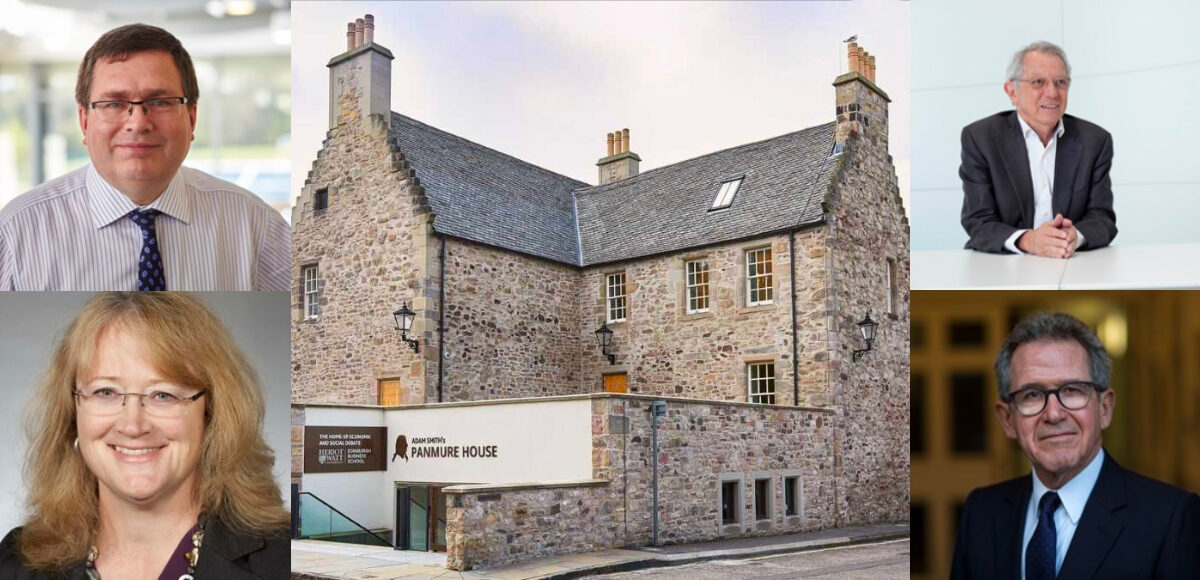On 18 May, I will have the pleasure of chairing the latest in the Hutton Series of debates as we seek to identify the top ten key priorities, innovations and actions for society that will be most effective and inclusive, ethical and global approach to the address the climate change challenges. The outcome will be captured in a report at COP-26. In parallel with this the Heriot-Watt University community will be seeking to answer the same question (by the end of 2021) by quantifying the top ten most effective and impactful things we will do to address the climate change challenge.
This is the fifth debate session, and it will focus on aspects of The Engineering Solutions. I have invited some well-known friends of the University to be our keynote speakers and debaters. Our own Honorary Graduate (and fellow metallurgist) Lord John Browne of Madingley, amongst many notable career distinctions, served as Group Chief Executive of BP from 1995 to 2007 and is a former President of the Royal Academy of Engineering. He is an advocate of inclusive society and in the climate change space as an advocate around carbon charging and the potency of existing and future transformative technology. Professor Sir David King is a former government Chief Scientist and long-time campaigner for climate change action. He chairs Independent SAGE and, significantly, heads up The Centre for Climate Repair at Cambridge University. The third debater is Professor Susan Krumdieck, recently appointed as Professor and Chair in Energy Transition at Heriot-Watt University, where she leads the academic programme of the Islands Centre for Net Zero in Orkney, and is known for her work and book on Transition Engineering: Building a Sustainable Future. Further details are available on the Panmure House website along with some interesting commentaries on what net-zero and other concepts mean for us. I am very much looking forward to hearing the thoughts and ideas from such an exceptional and knowledgeable panel as we bring new and innovative thinking to the table.
One of the many things I’m very proud of across our University is the way in which we encourage and support ideas and entrepreneurial spirit to create start-ups and potential spin-off companies. At the end of 2020, the GRID Enterprise team created the Innovation Challenge, a competition with the aim of supporting our community to become ambitious, forward-thinking and resilient, and to help launch new enterprises. And our latest winners have just been announced, receiving funding to help bring their ideas to life. The support offered by GRID is making a real difference to the ambitions of many of our staff, students and recent graduates as they look to make their ideas, with the potential to make transformational change, a reality. It is supported by both Santander Universities, and the Innovation Impact Fund established by our former Chancellor Dr Bob Buchan.
And from the lasting impact of our previous Chancellor, to the thoughts and ambitions of our new Chancellor. At the All-Staff Executive Briefing, I shared with you a small part of the conversation I had with Emeritus Prof Sir Geoff Palmer as we made the announcement of his appointment as our new Chancellor and I asked him about his new role. You can view the full conversation here and I hope to be able to share many more conversations with our new Chancellor throughout his tenure.
Thank you to everyone who joined the All-Staff Executive Briefing yesterday. Once again, we had a full and varied agenda, and we didn’t manage to get through all the discussion points and questions everyone submitted. We will post the discussions on Sharepoint as soon as possible. Our next Briefing is Wednesday 23 June, and I look forward to seeing you then. Meantime, as announced at the Briefing yesterday, look out for the special sessions on the Staff Survey outcomes and actions occurring across the University ahead.
Professor Richard A. Williams
Principal and Vice-Chancellor
